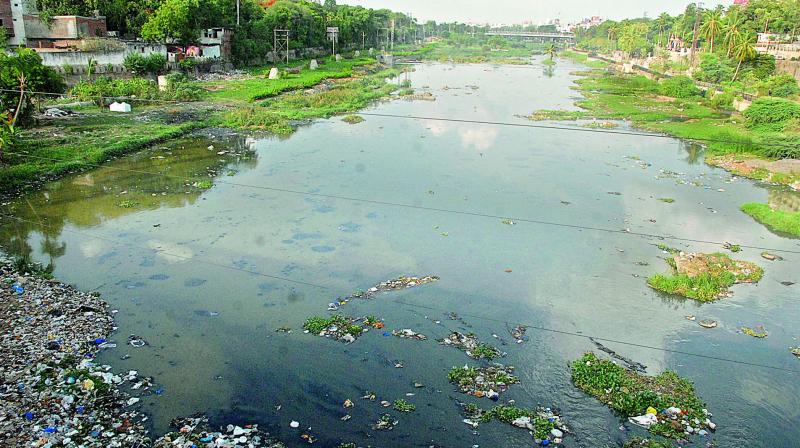Hyderabad: Hygiene survey of Musi river ordered

Hyderabad: The Principal Bench of the National Green Tribunal (NGT) has directed the Central Pollution Control Board (CPCB) and the Telangana Pollution Control Board (TSPCB) to carry out a quick hygiene survey of the Musi and other rivers in the state by engaging Prof. Suman Kapur, Dean, International Pro-grammes and Collaborations, and senior professor, department of biological science, BITS-Pilani, Hyderabad, and submit a report.
Prof. Kapur has been asked to submit his report before July 31.
The tribunal ruling came on a petition mo-ved by Sultan ul Uloom Law College students Mohammed Nayeem Pasha, Aftab Ghori and Mohammed Hyder. The second year students had approached the tribunal seeking a direction against the discharge of sewage and industrial effluents into the Musi river in gross violation of the constitutional protection giv-en to rivers and causing air, soil and water pollution in the surrounding areas.
The tribunal directed the CPCB to submit a report on the status of operation of sewage treatment plants (STPs) in and around the Musi. It asked Prof. Kapur to execute the survey at a cost of `9.5 lakh which will be paid by the CPCB out of its environment compensation fund. The scientists of CPCB and TSPCB will be associated with the survey and for field-testing of pathogenic bacteria.
The tribunal directed that CPCB to file its report on the execution of such survey for other rivers identified as polluted in the country. It asked that opinion be furnished on adoption of field-based testing and its validation.
The tribunal observed that the water quality assessment report of the Musi filed by the TSPCB, during 2014-18 indicated that the river stretch in Hyderabad was not fit even for irrigation (Class ‘E’ as per water quality criteria of CPCB).
They also mentioned that according to the TSPCB there are four common effluent treatment plants (CETPs) commissioned to treat industrial effluents being generated in the catchment of the Musi river and the treated effluents were disposed into the river. It observed that nothing had been said on the performance and compliance of the industries with respect to zero liquid discharge (ZLD) imposed on them, as well as the compliance by CETPs.
The applicants had brought out issues of pollution of Musi due to disposal of untreated sewage through the drains joining the river at different locations. The industries located in the catchment of the river which predominantly are bulk drug and pharmaceutical units, are discharging effluents through CETPs. Besides, the river flood plan zone has been encroached and huge construction and demolition waste (debris) along with other solid waste, is dumped into the river, the students said.
The matter has been listed for July 1.

